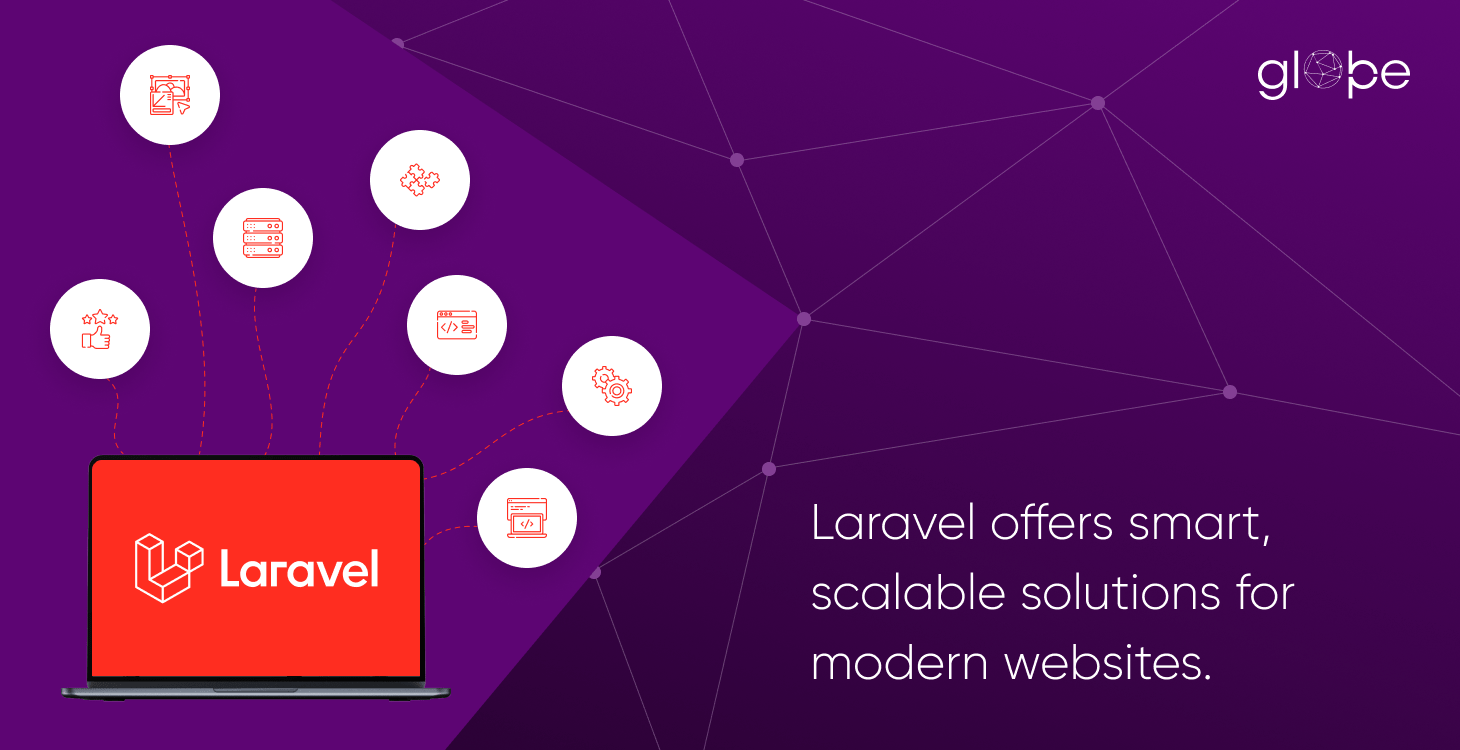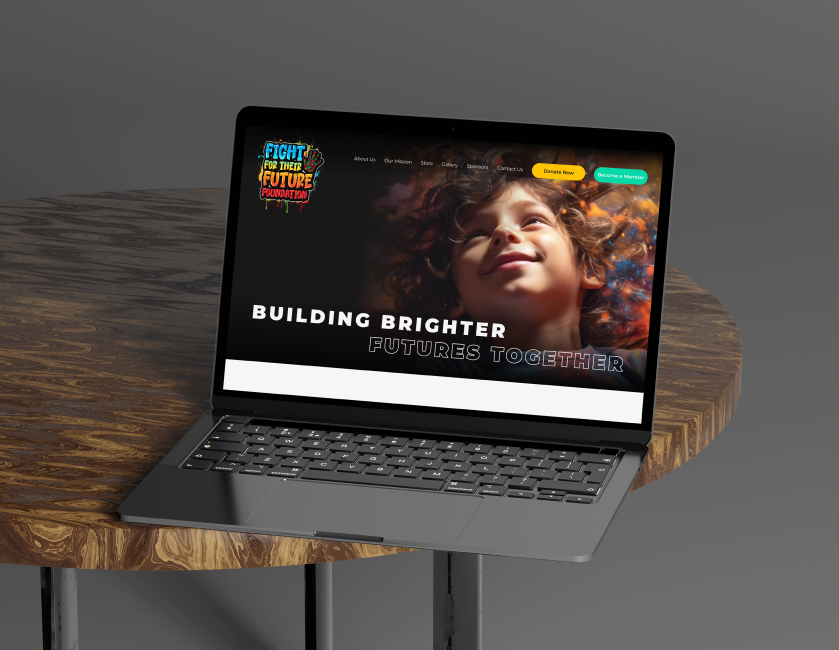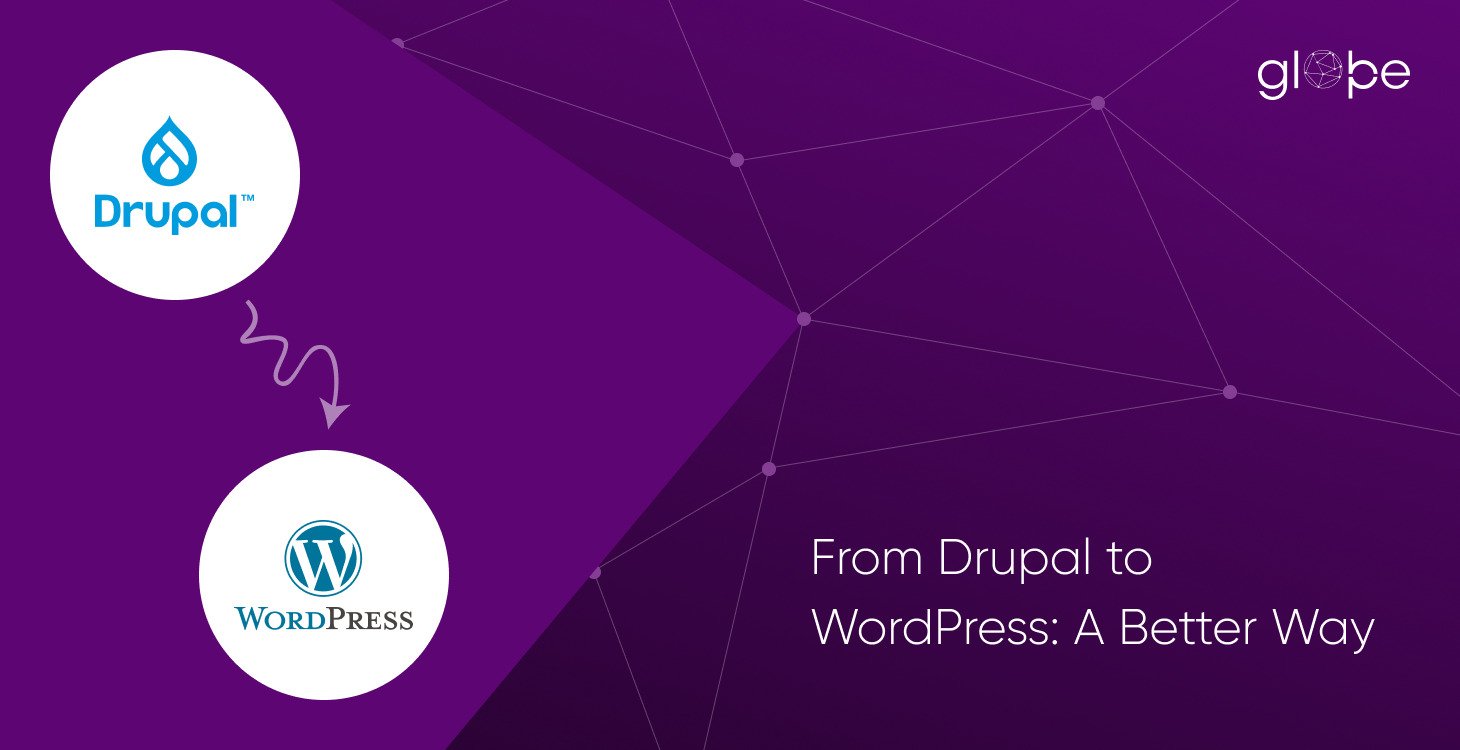
Businesses and developers require a web development framework that delivers efficiency, security, and scalability to keep up with evolving technology demands. Laravel, a powerful open-source PHP framework, has emerged as the preferred choice for modern web applications due to its elegant syntax, built-in tools, and robust security features. Since its inception, Laravel has gained immense popularity, boasting over 60,000 stars on GitHub and a thriving global community that continuously contributes to its growth.
Laravel simplifies the web development process by providing a structured and scalable approach, making it an ideal choice for both startups and large enterprises. Its MVC architecture, seamless database management, and API capabilities make it a go-to framework for developers looking to build secure, high-performance applications with minimal effort. Compared to other PHP frameworks like Symfony, CodeIgniter, and Yii, Laravel stands out for its developer-friendly features, extensive ecosystem, and active community support.
This article explores the key advantages of Laravel, why it is the best PHP framework in 2025, and how businesses and developers can leverage its capabilities to create efficient and future-ready web applications. Whether you’re a business owner looking for a reliable development solution or a developer seeking a framework that enhances productivity, this guide will provide valuable insights into why Laravel remains the leading choice for web development.
What is Laravel Framework for Web Development?
Laravel is an open-source PHP framework designed to simplify and enhance the web development process. Built on the Model-View-Controller (MVC) architecture, it offers a well-structured and scalable approach to building dynamic web applications. Known for its clean syntax, robust security, and extensive built-in functionalities, Laravel has become a preferred choice for developers worldwide.
A Brief History and Evolution of Laravel
Laravel was created by Taylor Otwell in 2011 with the goal of providing a more refined and developer-friendly alternative to existing PHP frameworks. Before Laravel, many developers relied on CodeIgniter, which lacked built-in authentication and modern security features. To address these limitations, Laravel introduced simplified authentication, routing, and database management, making it easier to build secure and scalable applications.
Over the years, Laravel has gone through multiple iterations, each improving functionality and developer experience. Some key milestones in Laravel’s evolution include:
- Laravel 3 (2012): Introduced Artisan CLI, database migrations, and built-in support for unit testing.
- Laravel 4 (2013): Complete rewrite, adopting Composer for dependency management and adding Eloquent ORM.
- Laravel 5 (2015): Enhanced security features, improved routing, and the introduction of Laravel Elixir for asset compilation.
- Laravel 6 & 7 (2019-2020): Focused on improved job handling, event broadcasting, and Laravel Vapor for serverless deployment.
- Laravel 8 & 9 (2021-2022): Introduced Laravel Jetstream, improved rate limiting, and refined API scaffolding.
- Laravel 10 & Beyond (2023+): Continuous enhancements in performance, security, and developer tools like Laravel Folio and Laravel Pennant.
With its active community, frequent updates, and commitment to modern development practices, Laravel continues to evolve as a cutting-edge framework for web applications.
Key Reasons to Choose Laravel for Web Development
Laravel has established itself as the leading PHP framework for web development due to its powerful features, developer-friendly environment, and built-in security mechanisms. Whether you're building a small business website, a large-scale enterprise application, or a RESTful API, Laravel provides the flexibility, scalability, and efficiency needed for modern web development.
Below are the top reasons why Laravel stands out among PHP frameworks and why developers and businesses continue to prefer it.
Elegant & Expressive Syntax
One of Laravel's most praised features is its clean, expressive, and developer-friendly syntax. The framework is designed to reduce complexity, allowing developers to write readable and maintainable code with minimal effort.
How It Enhances Developer Productivity
- Less Boilerplate Code: Laravel provides built-in methods for common tasks, reducing the need for repetitive coding.
- Fluent API Design: Developers can write intuitive and readable code, making collaboration easier.
- Better Debugging & Maintenance: Clean syntax helps identify errors faster, improving long-term code quality.
With Laravel, developers can focus on functionality rather than spending time on tedious configurations.
Built-in Authentication & Authorization
Security is a major concern in web development, and Laravel simplifies user authentication and access control with its built-in authentication system.
How Laravel Handles Authentication & Authorization
- Comes with a pre-configured authentication system, reducing setup time.
- Uses Laravel Sanctum & Passport for secure token-based authentication.
- Implements role-based access control (RBAC), allowing fine-grained permission management.
By integrating secure login, registration, and user management features out of the box, Laravel ensures that applications remain safe and easy to manage.
MVC Architecture for Code Organization
Laravel follows the Model-View-Controller (MVC) architectural pattern, which improves code organization, scalability, and maintainability.
Why MVC Matters?
- Separation of Concerns: Divides business logic (Model), UI (View), and application flow (Controller), making code cleaner.
- Better Scalability: Applications built with MVC are easier to scale and upgrade.
- Improved Collaboration: Teams can work on different parts of the project simultaneously.
Unlike traditional PHP projects that mix logic and presentation layers, Laravel's MVC structure ensures better maintainability and a cleaner codebase.
Robust Security Features
Cybersecurity threats such as SQL injections, cross-site scripting (XSS), and CSRF attacks are common concerns in web applications. Laravel addresses these risks with built-in security features, providing a secure development environment.
How Laravel Enhances Security
- CSRF Protection: Prevents unauthorized form submissions and attacks.
- SQL Injection Prevention: Uses Eloquent ORM & prepared statements to safeguard database queries.
- Password Hashing: Laravel encrypts passwords using Bcrypt or Argon2, making them more secure.
With these built-in security measures, developers can build applications that are resistant to common web vulnerabilities.
Eloquent ORM for Simplified Database Management
Laravel’s Eloquent ORM (Object-Relational Mapping) makes working with databases efficient and intuitive compared to raw SQL queries.
Why Use Eloquent ORM?
- Cleaner Syntax: Querying databases is easier with expressive, chainable methods.
- Automatic Data Handling: Relationships, migrations, and indexing are automated.
- Prevents SQL Injection: Protects against vulnerabilities with parameter binding.
Example of Eloquent vs Raw SQL:
Eloquent ORM:
php
CopyEdit
$users = User::where('active', 1)->get();
❌ Raw SQL Query:
sql
CopyEdit
SELECT * FROM users WHERE active = 1;
With Eloquent ORM, developers can focus on building features rather than writing complex queries.
Artisan CLI for Task Automation
Laravel’s Artisan Command-Line Interface (CLI) enhances productivity by automating repetitive development tasks.
What Can You Do with Artisan?
- Generate Models, Controllers, and Migrations with simple commands.
- Run Database Migrations & Seeders for quick testing and deployment.
- Schedule Background Tasks using Laravel’s built-in scheduling feature.
Example Command to Create a Model:
bash
CopyEdit
php artisan make:model Product -m
Artisan streamlines development, reducing manual coding effort and saving time.
Blade Templating Engine for Efficient UI Development
Laravel’s Blade templating engine allows developers to create lightweight, reusable, and dynamic views without sacrificing performance.
Why Choose Blade?
- Faster & More Secure: Blade compiles templates into plain PHP for better performance.
- Reusable Components: Use @include and @yield to create dynamic layouts.
- Zero Overhead: Unlike traditional templating engines, Blade doesn’t slow down rendering.
Blade’s flexibility and speed make it a preferred choice for frontend development within Laravel applications.
Built-in Caching for Faster Performance
Laravel enhances performance by supporting multiple caching backends such as Redis, Memcached, and file-based caching.
Why Caching Matters?
- Faster Load Times: Stores frequently accessed data to reduce database queries.
- Optimized Performance: Reduces server load and improves application speed.
- Easy Implementation: Laravel’s caching API simplifies setup and management.
Example: Enabling Cache in Laravel
php
CopyEdit
Cache::put('key', 'value', 600);
Laravel’s caching mechanism ensures applications run smoothly, even under heavy traffic.
Laravel Ecosystem & Packages
Laravel offers a rich ecosystem of tools and packages that extend functionality and improve efficiency.
Popular Laravel Ecosystem Tools
- Laravel Nova: A sleek admin panel for managing applications.
- Laravel Forge: Automates server deployment and configuration.
- Laravel Vapor: A serverless platform for scaling Laravel applications.
- Laravel Horizon: Provides real-time monitoring for queue management.
These tools make Laravel a complete solution for modern web development.
RESTful API Development Made Easy
Laravel simplifies API development with built-in support for RESTful services using Passport and Sanctum.
Why Laravel for APIs?
- Token-Based Authentication: Secure API access with Laravel Passport.
- Middleware Support: Control access to resources.
- Effortless JSON Response Handling: Provides clean, structured API responses.
Example: Creating a Basic API Route in Laravel
php
CopyEdit
Route::get('/products', [ProductController::class, 'index']);
Laravel makes it easy to develop, test, and deploy APIs, making it an excellent choice for mobile and web applications.
Conclusion: Why Laravel is the Best Choice for Web Development
Laravel has firmly established itself as the go-to PHP framework for modern web development, offering a perfect balance of efficiency, security, and scalability. With its elegant syntax, built-in authentication system, MVC architecture, and extensive ecosystem, Laravel simplifies development while ensuring robust performance. Whether you’re building a business website, an enterprise solution, or a RESTful API, Laravel provides the flexibility and power to meet your project’s needs.
Beyond its technical advantages, Laravel’s active community, continuous updates, and growing adoption make it a future-proof framework that evolves with industry demands. From startups to large enterprises, businesses worldwide trust Laravel to deliver high-performance, secure, and maintainable applications.
However, to fully leverage Laravel’s capabilities, it’s crucial to have expert guidance and best development practices in place. Partnering with an experienced Laravel development company ensures that your project is built with scalability, security, and performance in mind. Whether you need a custom web application, API integration, or enterprise solution, choosing the right development team can streamline the process and maximize efficiency.
If you’re looking to build a fast, secure, and scalable web application, now is the time to invest in professional Laravel development. Start your Laravel project today with a trusted Laravel development company and experience the power of this industry-leading framework firsthand.




